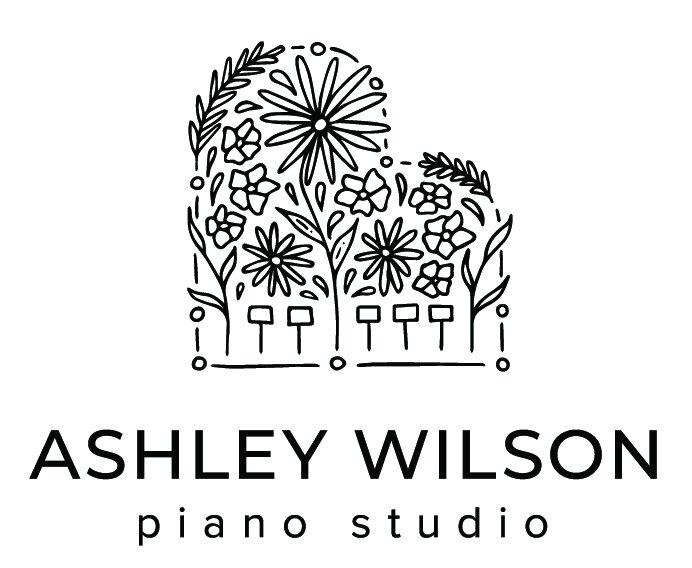Studio Philosophy, Values, and approach
“There is music in every child. The teacher’s job is to find it and nurture it.”
Everyone is a musician
I believe that with consistent effort and practice, every student can learn to play the piano in a way that is realistic for and meaningful to them. There is no threshold at which one “becomes” a musician or “earns” the title of musician; we are all born musical.
Music for Music’s Sake
Research shows that learning music aids in language development, spatial-temporal skills, and can increase test scores. While I celebrate the extramusical benefits of learning to play the piano, I also believe that music is worthy of being pursued simply for its own sake. Making music is fundamentally human—not a means to an end.
Relationships and Trust are Key
Students need a safe place to make mistakes, ask questions, take risks, solve problems, and freely explore new concepts. It is the teacher’s responsibility to create this space and craft experiences that lead to learning. I view my role as more of a facilitator than an instructor; my students are my co-pilots rather than passengers.
Repertoire is a primary motivator
An engaging, pedagogically sound repertoire that speaks to the individual student plays a major role in a student's ongoing interest in music. I use method books as a general guide, but supplement heavily from diverse sources to create a rich, optimally challenging musical environment.
The parent’s role is crucial
Parental encouragement and support at all ages stages of learning is vital. Students need to see their parents being supportive of and excited about their musical growth, even when learning is hard. Parental support may look different over time, but it must be a constant thread throughout the student’s musical experience.
Effort over talent
I believe that consistent, goal-directed behavior should be emphasized over the concept of innate talent. Everyone has the potential for growth and enjoyment! Natural talent exists—but there’s simply no substitute for consistent, honest effort and a positive mindset.
Progress over perfection
I emphasize forward motion, consistent growth, honest effort, and authenticity over note-for-note perfection. Progress may present itself in different ways at different times, and it’s natural for the intensity of lessons to ebb and flow. No two musical journeys are identical!
Nurture a culture of—not a demand for—excellence
Making mistakes and experiencing challenges is inherent to piano study. Correcting mistakes and facing challenges with positivity and belief in the student is imperative and paves the way for students to self-critique in a constructive way. I believe that self-reflection without judgement is how students ultimately develop the grit it takes to achieve at high levels, and I strive to always be a model of positivity.
Unhurried fundamentals
My students and I take our time with building foundational skills like rhythm, technique, and music-reading. I view foundational skills not as boxes to be checked off, but as concepts to be visited and revisited (and revisited, and revisited…) to encourage as many ways of knowing as possible. I have found that this approach promotes depth of knowledge and fosters students’ ownership of their learning. While students will certainly make great musical progress, my emphasis is not on reaching advanced levels as quickly as possible. There is so much beauty (and fun!) to be found in taking our time.
Music Learning Theory
My teaching is informed by Music Learning Theory, which you can read more about here. This means that a cornerstone of my teaching is delaying reading traditional staff notation. Think about when your child was learning to speak. Did they begin reading books as soon as they could talk? Students, by design, will not learn to read music in their first semester of lessons with me. Instead, we’ll explore all kinds of music and allow our ears to learn to hear music before learning to read it—this way, we mimic the language-learning process. While this approach is well-researched and accepted in the music education community, it can seem a little unusual. I’m always happy to answer any questions families have about Music Learning Theory and address any concerns about delayed music-reading.

